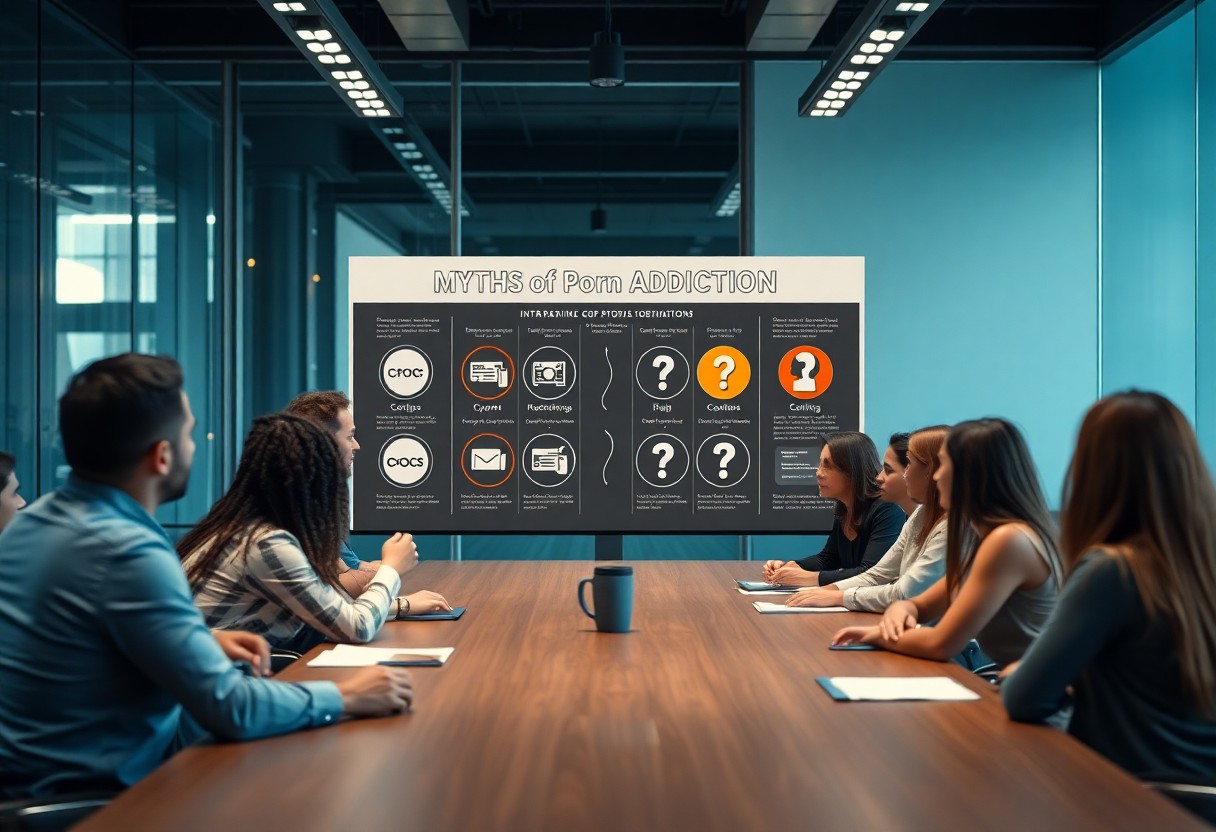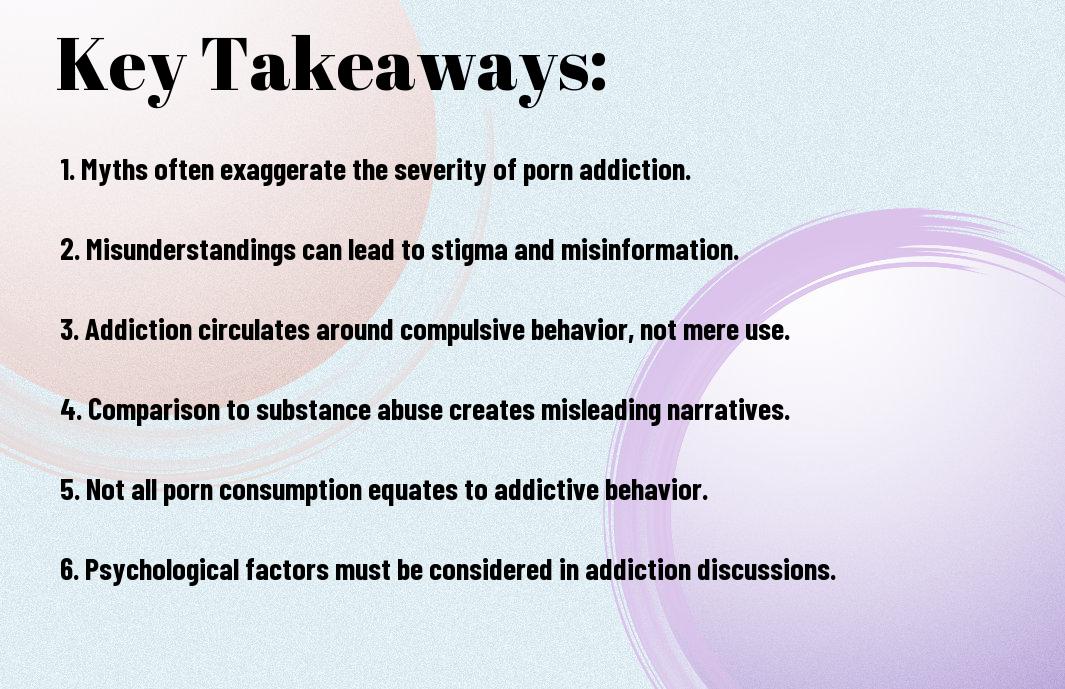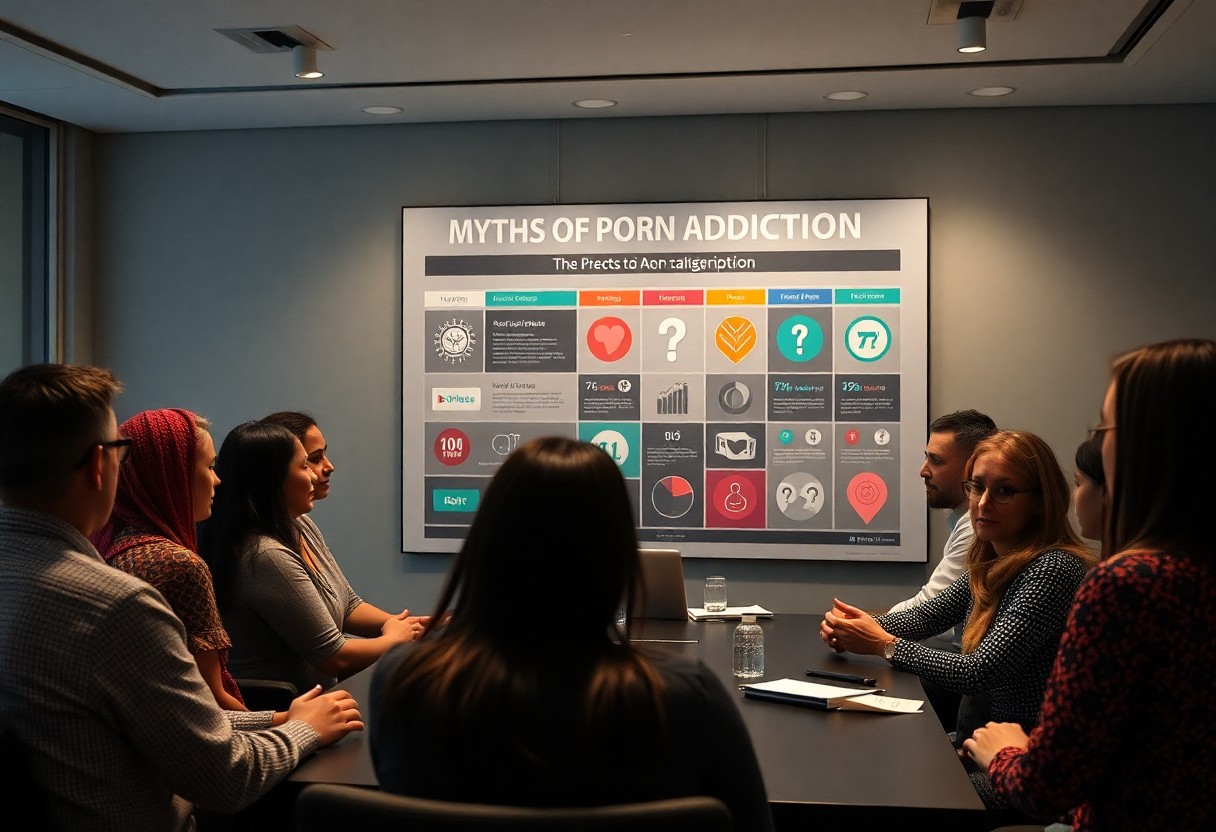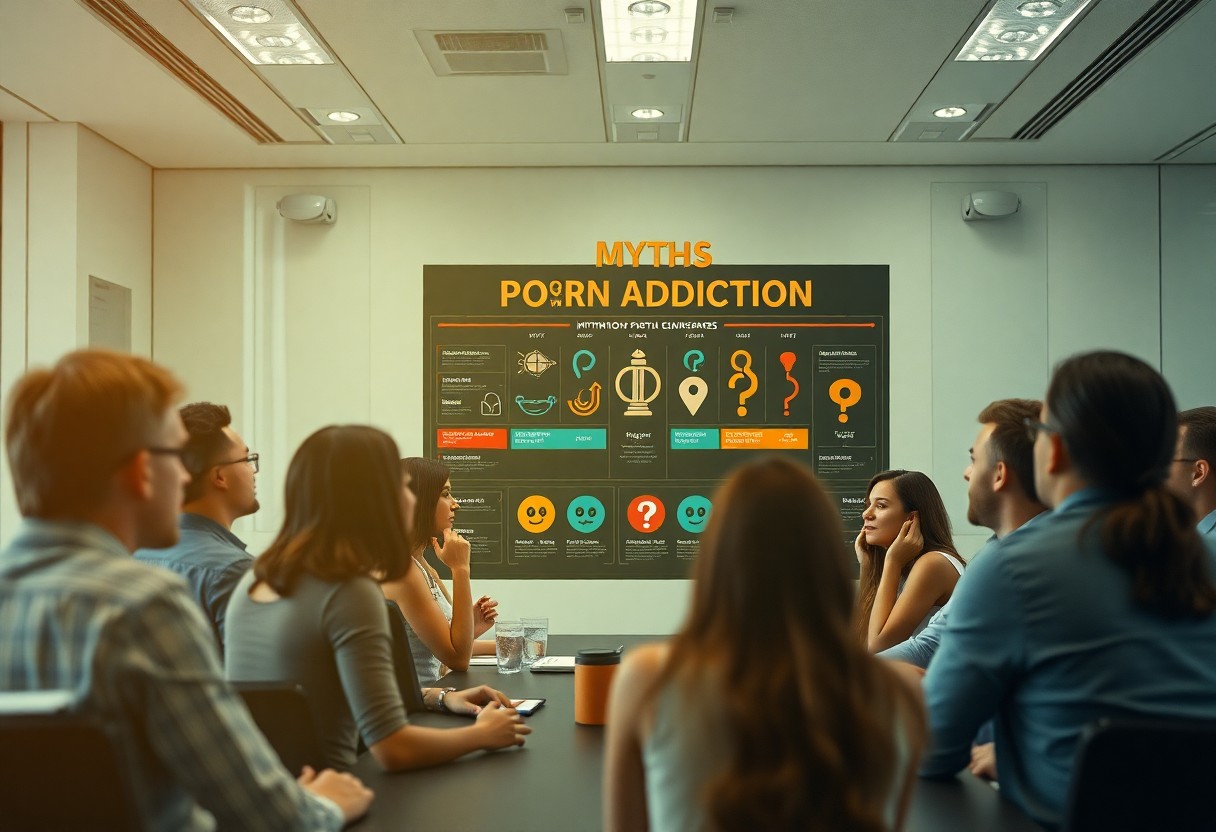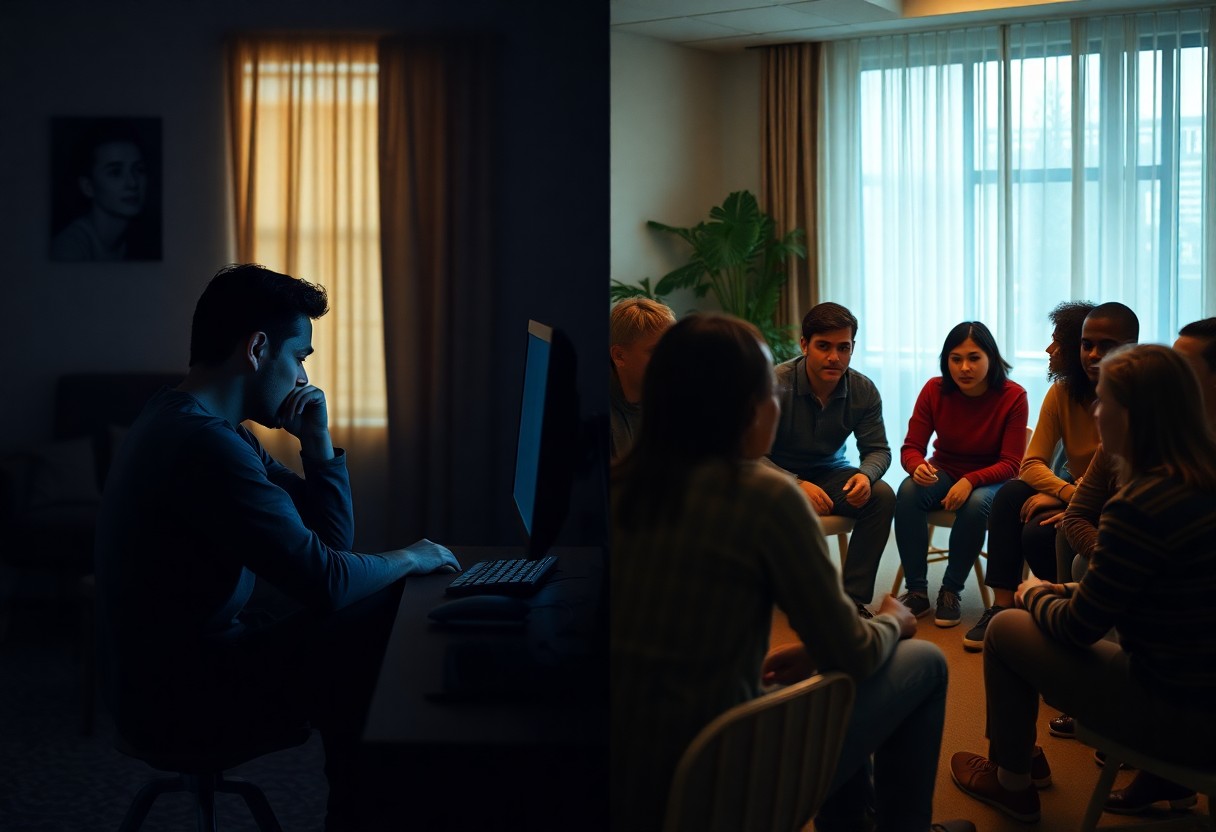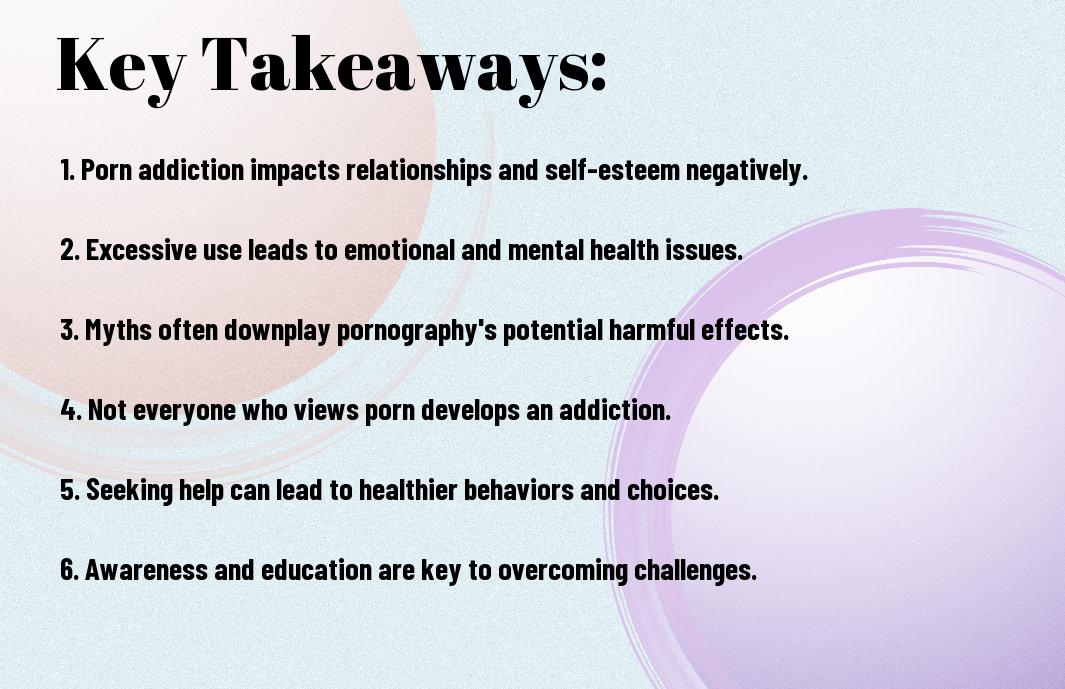Just like any other addiction, recovering from porn addiction involves various factors that can influence your timeline. Understanding the recovery process is important, but it’s also important to separate facts from myths. In this post, you will explore seven common misconceptions that might affect how you perceive your own journey toward healing. By debunking these myths, you can gain clarity on what to expect and the steps you can take to support your recovery.

Key Takeaways:
- Recovery from porn addiction varies significantly from person to person, depending on individual circumstances and the severity of the addiction.
- Myth: Recovery is a quick process. The reality is that it often takes several months to years to achieve lasting change.
- Withdrawal symptoms can occur, which may include anxiety, irritability, and mood swings, and these can affect the duration of recovery.
- Support systems, such as therapy and support groups, play an important role in facilitating a smoother recovery process.
- Myth: Rush to eliminate porn entirely. Gradual reduction is often more effective and less overwhelming for those in recovery.
- Triggers and underlying issues must be addressed alongside reducing porn consumption for a more comprehensive recovery.
- Myth: Once you’re ‘clean,’ you’re done. Ongoing self-awareness and strategies for managing triggers are crucial for long-term recovery and relapse prevention.
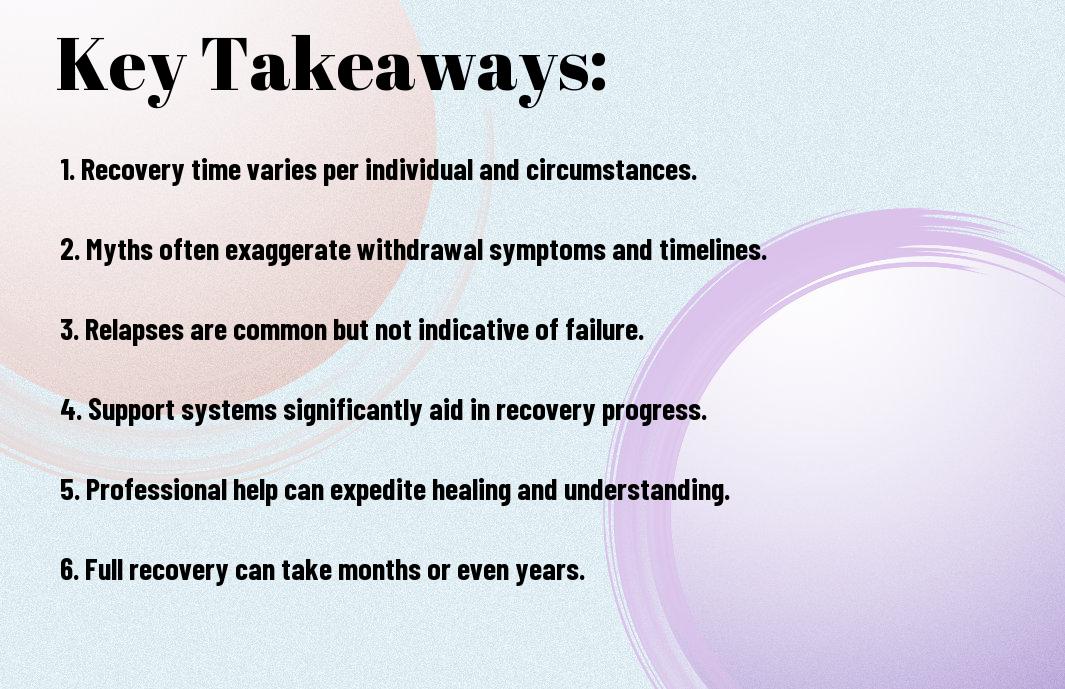
Understanding Porn Addiction
A deep understanding of porn addiction is vital for recognizing its impact on your life. This type of addiction can affect your mental health, relationships, and overall well-being. By identifying porn addiction, you can begin the process of recovery and make informed decisions about your habits and behaviors.
Definition of Porn Addiction
Along with the increasing accessibility of pornography, the concept of porn addiction has become more prevalent. It is characterized by compulsive use of pornographic material that interferes with your daily life, relationships, and personal responsibilities. This compulsive behavior can lead to significant distress and disrupt your mental and emotional health.
Symptoms and Signs
Along your journey towards understanding porn addiction, it’s vital to recognize its symptoms and signs. These may include frequent, overwhelming urges to view pornography, neglecting responsibilities in favor of consuming explicit content, and experiencing feelings of guilt or shame afterward. You may also find that you spend increasing amounts of time seeking out or viewing porn, disrupting your daily activities.
Hence, acknowledging these symptoms can help you identify the presence of porn addiction in your life. It’s vital to be aware of how your consumption impacts your emotional state, relationships, and overall productivity. If you notice patterns like withdrawal from social interactions, escalating pornographic content for arousal, or using pornography as a coping mechanism for stress or anxiety, it could indicate an unhealthy dependence. Understanding these signs can empower you to seek help and make necessary changes.

The Recovery Process
You may find that the recovery process from porn addiction is multifaceted and unique to each individual. It typically involves acknowledging the problem, seeking support, and implementing lifestyle changes. Patience and persistence are key; understanding that setbacks may occur can help you remain focused on your journey towards healing.
Stages of Recovery
Any recovery process generally consists of several stages: acknowledgment, acceptance, action, and maintenance. You need to recognize the addiction first, which leads to acceptance of the need for change. Then, you can take action through therapy or support groups, followed by maintaining your new, healthier habits.
Factors Influencing Recovery Time
Before plunging into recovery, understand that various factors will influence how long it takes for you to feel healed. These include the severity of your addiction, your support system, and your willingness to confront underlying issues. Other factors might be your coping skills and mental health, which can significantly impact your progress. You might consider the following:
- Your history with porn use
- The support you receive from friends and family
- Your levels of motivation and commitment
- Underlying mental health issues
Thou must also be aware that recovery is not linear; it can have ups and downs. Even as you navigate this journey, be mindful that the time required varies for each person. Some may find quick resolutions while others need more time and support. You should be aware of factors such as:
- Personal resilience and coping mechanisms
- Consistency in attending support meetings
- Engagement in therapy or counseling
- Adoption of healthier lifestyle practices
Thou may benefit from patience and compassion towards yourself throughout this process.
Common Myths about Recovery
For those struggling with porn addiction, understanding the recovery process is vital to your journey. Many misconceptions exist, which can hinder your progress. For more insight into these misunderstandings, check out Porn Addiction Signs, Myths, and Treatment Options.
Myth 1: Recovery is Immediate
Any expectation that recovery will happen overnight can lead to disappointment. Overcoming porn addiction takes time and persistent effort. Progress may be gradual, and it’s important to be patient with yourself as you navigate the ups and downs of this journey.
Myth 2: It Requires Professional Help
The idea that you must seek professional assistance to recover can be misleading. While treatment programs and therapists can provide valuable support, many individuals have successfully overcome porn addiction through self-help strategies, community support, and personal determination.
Myth 2 emphasizes that professional help is necessary, but it’s not the only path to healing. Many individuals find recovery through self-reflection, lifestyle changes, and peer support, enabling them to regain control without formal treatment.
Myth 3: Abstinence is the Only Solution
On your journey to recovery, you might think that simply abstaining from porn is the sole way to overcome your addiction. However, focusing solely on abstinence can leave other underlying issues unaddressed.
Due to the complexity of addiction, just abstaining from porn may not provide a complete solution. It is often vital to explore the emotional and psychological aspects of your relationship with porn, addressing triggers and developing healthier coping mechanisms alongside any efforts to stop consumption.
Realistic Expectations for Recovery
All recovery journeys are unique, and your progress will depend on several factors such as the duration and intensity of your addiction, personal resilience, and support systems. Understanding that recovery is not a linear process is important; you may experience setbacks along the way. By acknowledging this, you can cultivate a positive mindset and remain committed to your healing journey.
Timeline for Recovery
For many people, recovery from porn addiction can take several months to a few years. Initially, you may notice improvements in your mental clarity and emotional well-being within weeks. However, deeper emotional and psychological healing may require more time, depending on your circumstances and efforts dedicated to the process.
Setting Achievable Goals
Setting realistic goals can significantly enhance your recovery experience. It’s important to break down your overall recovery objective into smaller, manageable milestones that you can celebrate along the way. This approach helps you maintain motivation, track your progress, and build a sense of accomplishment as you navigate your journey to healing.
In addition to breaking your goals into smaller steps, it’s beneficial to align them with your personal values and priorities. For example, you might aim to improve your communication skills, cultivate meaningful connections, or develop healthier coping strategies. By making these goals personal and relevant, you’ll find it easier to stay focused and motivated throughout your recovery journey.

Strategies for Overcoming Porn Addiction
Keep in mind that overcoming porn addiction is a process that requires commitment and a well-structured approach. Implementing effective strategies can significantly enhance your recovery journey. Start by identifying triggers, developing healthy habits, and seeking professional help if necessary. By actively engaging in these strategies, you empower yourself to regain control over your choices and mindset.
Coping Mechanisms
At times, you might feel overwhelmed by urges or cravings during your recovery from porn addiction. Developing coping mechanisms can be imperative in managing these feelings. Consider practicing mindfulness, engaging in physical activities, or pursuing hobbies that bring you joy. These activities can occupy your mind and help redirect your focus, making it easier to resist temptations.
Support Systems
Strategies to overcome porn addiction are significantly enhanced when you build a strong support system. Surrounding yourself with friends, family, or support groups can provide encouragement and guidance as you navigate your recovery. Openly discussing your struggles with those you trust can offer accountability and understanding, reminding you that you are not alone in this journey.
Further, consider seeking out professional help through therapists or counselors who specialize in addiction. They can provide tailored support and coping strategies, addressing the underlying issues that contribute to your porn addiction. Joining online forums or local support groups can also connect you with others who share similar experiences, fostering a sense of community and shared understanding as you work towards recovery.
Final Words
On the whole, overcoming porn addiction is a highly individual process that varies from person to person. The myths surrounding the recovery timeline may lead you to think it’s a quick fix, but it typically requires time, commitment, and the right support. Understanding that recovery is a journey can empower you to seek the help you need, set realistic goals, and cultivate patience. By acknowledging these truths and actively working towards your healing, you can reclaim control over your life and make lasting changes.
FAQ
Q: How long does it typically take to recover from porn addiction?
A: The recovery duration from porn addiction varies for each individual. Factors such as the length and severity of the addiction, personal support systems, and the methods of recovery chosen can all influence the timeline. On average, many individuals may experience significant improvements within a few months, while full recovery could take several months to a few years.
Q: Is recovery from porn addiction a linear process?
A: No, recovery is often not a linear journey. Many individuals may experience setbacks or relapses while learning to cope with triggers and cravings. It’s important to approach recovery with patience and an understanding that overcoming addiction is a gradual process that may include ups and downs.
Q: Can you fully eliminate cravings after recovering from porn addiction?
A: While many individuals report a significant reduction in cravings after recovery, it is not uncommon to still experience occasional urges. Over time, with appropriate coping strategies and support, these cravings can become less intense and more manageable.
Q: Are there specific strategies that can speed up the recovery process?
A: Various strategies may aid recovery, such as behavioral therapy, support groups, setting personal goals, and maintaining a healthy lifestyle. Engaging in hobbies, practicing mindfulness, and developing healthy relationships can also contribute positively to the recovery process.
Q: How important is support from friends and family during recovery?
A: Support from friends and family can play a significant role in the recovery process. This support offers encouragement, accountability, and emotional comfort, which can enhance resilience and motivation. Open conversations about the challenges of recovery can strengthen these relationships as well.
Q: Are online resources effective for overcoming porn addiction?
A: Many individuals find online resources, such as forums, courses, and counseling options, to be effective tools for recovery. These resources can provide anonymity, access to information, and the ability to connect with others who share similar experiences, all of which can enhance the recovery journey.
Q: Is it possible to recover from porn addiction without professional help?
A: Yes, while professional help can be beneficial, many individuals successfully overcome porn addiction through self-help methods, peer support groups, and personal commitment. It’s important to find the approach that works best for you and to seek professional assistance if needed at any step of the recovery process.

